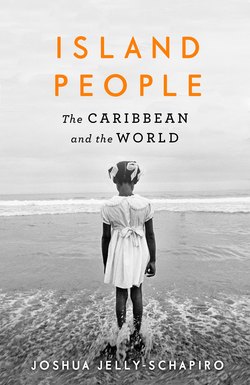Читать книгу Island People - Joshua Jelly-Schapiro - Страница 18
На сайте Литреса книга снята с продажи.
ОглавлениеCHAPTER 5
CUBAN COUNTERPOINTS
THE TERM CUBANIDAD IS generally credited to José Antonio Saco, a prominent white criollo nationalist of the mid-nineteenth century. It gained a new currency when the island’s blacks—notably the freed slaves who made up a large part of the army that launched Cuba’s long series of wars against Spanish rule in 1868—embraced their leader Antonio Maceo’s call to “ask for nothing as a black and everything as a Cuban.”1 To conceive of being sovereign, all worldly countries must first conceive of themselves as nations. And cubanidad, as such, first crystalized as an important, if still vague, idea when the cause of Cuban independence found its foremost apostle, in the 1880s and ’90s, in the florid pen and speech making of José Martí. Addressing enthused émigré crowds in Tampa or New York, Martí evoked a sweet land of palm trees and sincere men to solicit contributions to his cause. He told Cubans abroad that their island was an enlightened place where “on the field of battle, dying for Cuba, the souls of whites and Negroes have risen together into the air.”2 Martí’s high-minded cubanidad was estimably antiracist. But it was also more a rhetorical tool, useful in the run-up to the war that martyred him, than a definable good.
It wasn’t until some years after Martí’s soliloquizing helped spark the final phase of Cuba’s struggle for independence, which saw the apostle killed in an early battle, that there emerged in Cuba a concerted and sophisticated effort to examine the question of how myriad African and Iberian and other strands combined to make Cuban culture. For though Cuba did gain its independence from Spain in 1898, that freedom came at a cost. The greatest Antille immediately became a quasi-colony of a nearer-by superpower, which swooped in as Spain was leaving. The United States forcibly inserted the so-called Platt Amendment into independent Cuba’s first constitution, arrogating to itself the right to oversee and intervene in Cuban affairs however it wished. And it was under the series of corrupt and corrupted Cuban leaders, in the tawdry dependency that the Americans helped create, that Cuba’s progressive intellectuals turned in earnest to parsing the substance and import of cubanidad. C. L. R. James appraised what happened in Cuba during those years—and the importance of that story’s leading figure not just to Cuba but across the Caribbean.
It was just one year after the Platt Amendment that there first appeared what has turned out to be a particular feature of West Indian life—the non-political writer devoted to the analysis and expression of West Indian society. The first was the greatest of them all, Fernando Ortiz. For over half a century, at home or in exile, he has been the tireless exponent of Cuban life and Cubanidad.3
